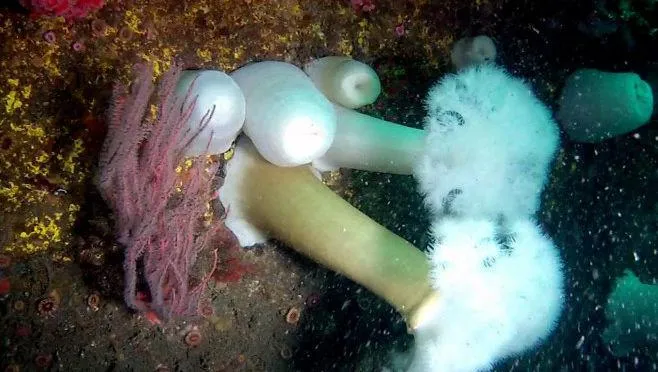2017: What Happened
December:
Recently, Philip Mirowski, Carl E Koch Professor of Economics and Policy Studies and the History and Philosophy of Science at the University of Notre Dame, and a fellow at the Reilly Center in Indiana, published an in-depth critique of the field of Citizen Science in its present form.
I have provided a link to that article below the rebuttal here.
Dr. Sheldon Wilde Greaves, a member of Ocean Sanctuaries Board of Directors has provided the following rebuttal:
By Sheldon Greaves, Ph.D. Ocean Sanctuaries 11 December 2017 (Download PDF) A recent essay[1] by Philip Mirowski has caught the attention of the Citizen Science community, by raising some trenchant questions despite several questionable assertions and assumptions about the Citizen … Continue reading
Dr. Mirowski’s Original Critique: https://tinyurl.com/ybfxayr7

November:
Interview with OS Citizen Science Project Director, Michael Bear
Pelagic Love: Ocean Passion Series
Nov. 17

The Citizen Science Revolution and Artificial Intelligence
by Michael Bear
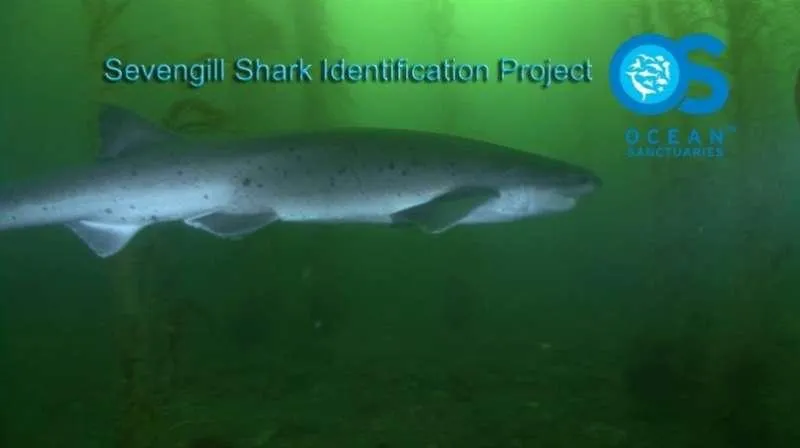
Two revolutions have been occurring at the same time in recent years: the citizen science revolution and the artificial intelligence revolution. And revolution is not too strong a term to use for either.
Although one could say that citizen science has been around since the days of Darwin, since he had no formal degrees in his field and pursued his studies of evolution out of personal interest, it has been more or less in the last 5 years or so that citizen science has really come into its own as an academic discipline.
See here for more: http://scitechconnect.elsevier.com/citizen-science-revolution-artificial-intelligence/
Oct. 5:
SciStarter Citizen Science Blog
by Kristin Butler

From Tide-pooling to Shark Diving, Citizen Science with Ocean Sanctuaries
“During the past eight years, what started as a simple survey of local dive sightings has grown to an international study of sevengills and other shark species, an online platform that uses NASA technology to analyze shark freckles, and a social media presence that educates people about ocean conservation.”
For more, see here: https://blog.scistarter.com/2017/10/tide-pooling-shark-diving-citizen-science-ocean-sanctuaries/
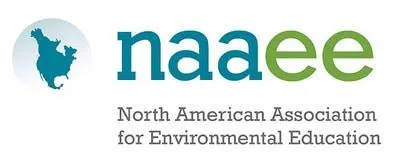
On July 25, the North American Association of Environmental Education (NAEE) sponsored an online webinar titled: People-Powered Impacts: Using Citizen Science to change the World, which gave an excellent overview of how two citizen science tools, Fieldscope and iNaturalist are used by various citizen science groups to collect data. Ocean Sanctuaries’ ‘Sharks of California‘ was one featured example in the presentation on Fieldscope.
Video: People-Powered Impacts: Using Citizen Science to change the World: https://youtu.be/RMhMOghKwVY
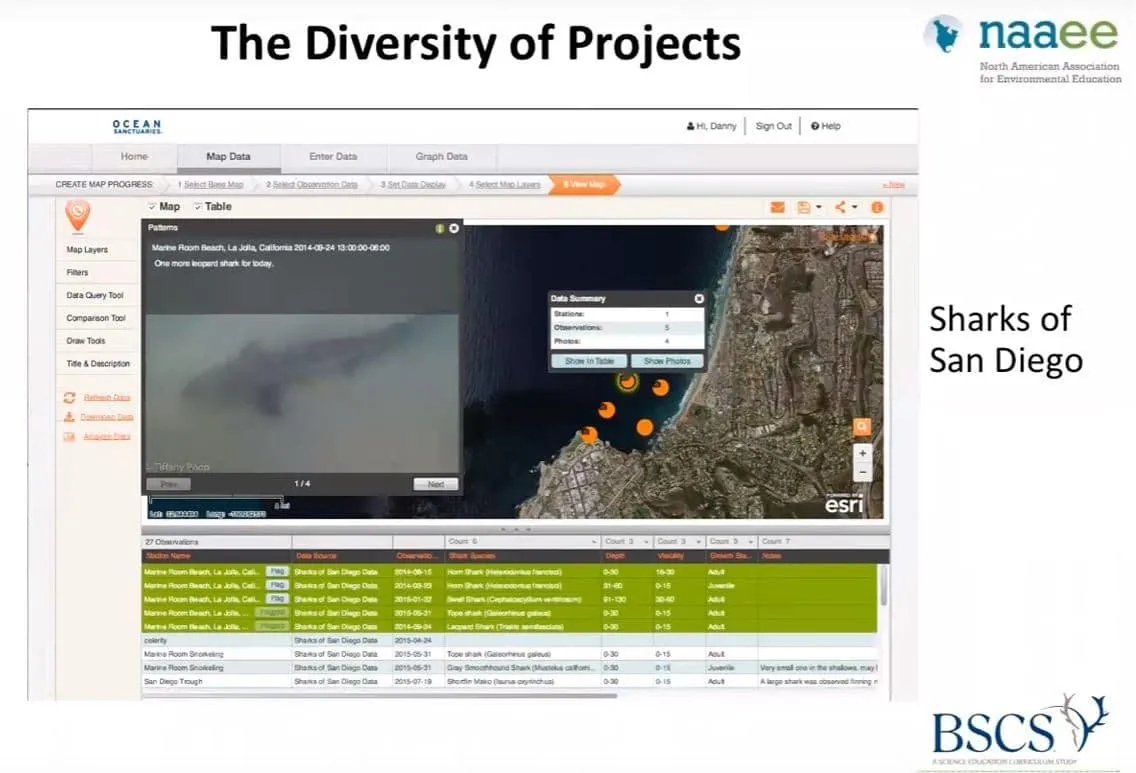
And, later this year…
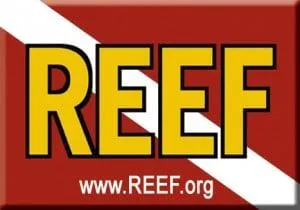
Ocean Sanctuaries is pleased to announce that, beginning sometime in late 2017, we will, in conjunction with another ocean citizen science nonprofit group, REEF.org, offer a basic (West Coast) Marine Citizen Scientist Certification course. Certifications for other parts of the US may come later.
It would consist of two parts:
Part I: Basic Fish and Invertebrate Identification
The student would complete a basic online marine life and fish identification course with REEF, which has been available for several years now on REEF.org website. Residents of California would take the California fish ID and marine life invertebrates course and residents of the Pacific Northwest, Washington and Vancouver areas, could take the corresponding courses for the Pacific Northwest.
Link: https://www.reef.org/quizzes
Upon satisfactory completion of this portion of the course, as determined by REEF, they would then proceed to:
Part II: Basic Scientific Concepts, Protocols and Tools for the Citizen Scientist
such as taking notes and scientific measurements in the field, using nautical maps and GPS and basic species taxonomy, to be designed and offered by Ocean Sanctuaries.
Once both Part I and Part II have been satisfactorily completed, then a basic Marine Citizen Scientist certificate would be issued. So far, we have no plans to charge for either course.
Note: This would not be a scuba certification program and any training involved with scuba equipment would have to be obtained separately.
Click on the link above to see who in the media has been talking about Ocean Sanctuaries and Citizen Science.
Here are some of the most recent:
NBC News San Diego Interview with Michael Bear
KPBS Dives with Ocean Sanctuaries on the Yukon

Scuba Diver Life
June Issue
“Citizen science, or community science, has gained popularity in recent years. Ocean Sanctuaries, based in San Diego, offers a few projects for interested divers.”
Citizen science, or community science, has gained popularity in recent years. Ocean Sanctuaries, based in San Diego, offers a few projects for interested divers.
CONTACT
Ocean Sanctuaries, Inc.
1981 Caminito el Canario
La Jolla, CA 92037 USA
+1.858.633.7305
NPO INFO
EIN 46-5209246
501(c)(3) Nonprofit
C Environmental Quality Protection, Beautification
C30 (Natural Resource Conservation and Protection)
BOARD OF DIRECTORS
© 2024 Ocean Sanctuaries, Inc. | Privacy Policy | Terms of Service


